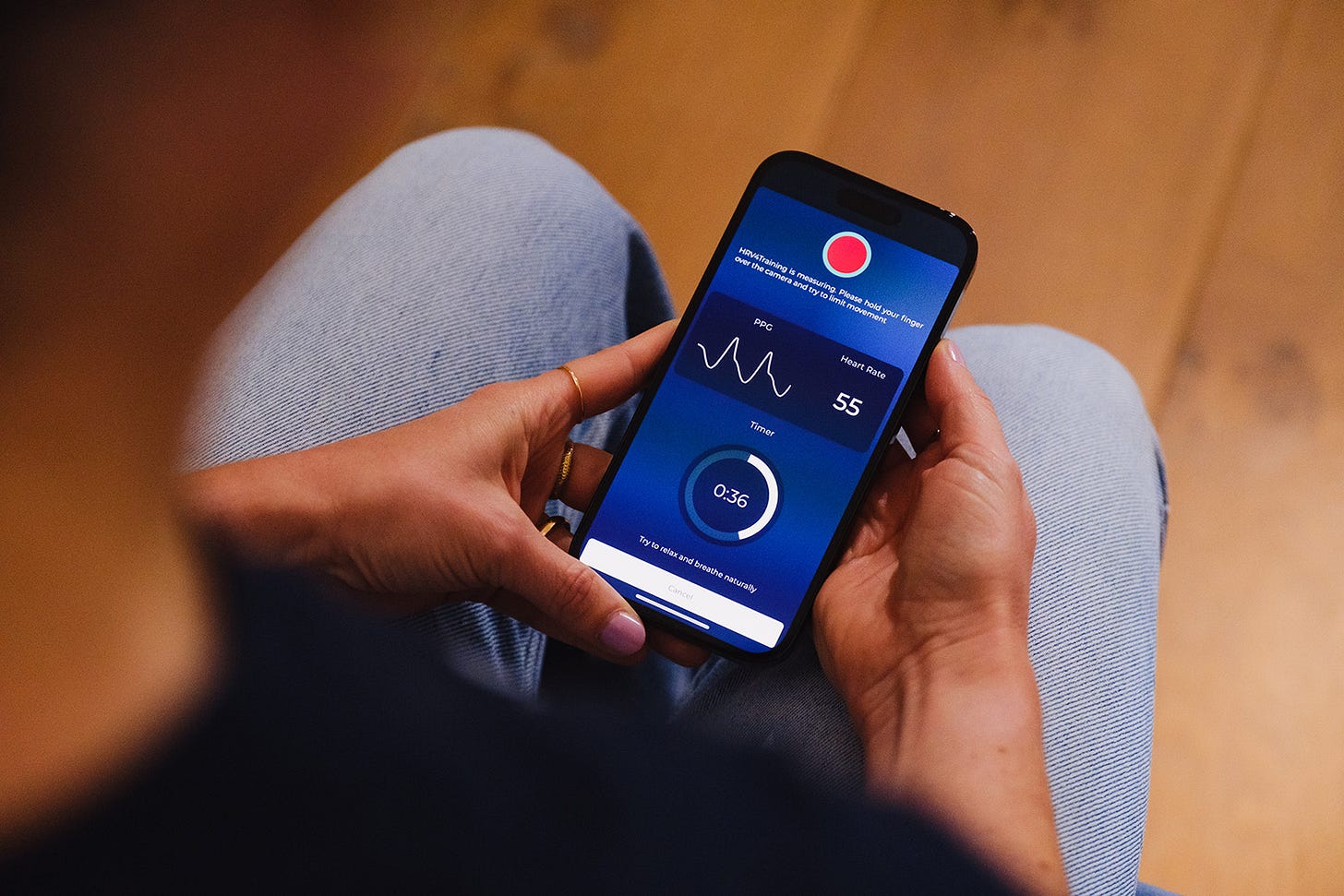[Q&A] Would it be better to measure HRV before sleep?
a few notes about protocols, best practices and actionability of the data we collect
I have recently received the following question, which I think can be useful to discuss, given that it comes up from time to time, for different reasons:
I am an anxious person and, consequently, at times also suffer from sleep problems. In my case, the anxiety manifests itself more in the later part of the night and in the morning.
Currently, I measure in the morning. Should I maybe transition to measuring before going to bed?
I seldom get nervous in the evening, which also manifests itself in my generally not having problems falling asleep. It is staying asleep that is the issue when in an anxious period.
Do you have any experience in this regard?
In general, even in this case, I would still recommend morning measurements. The difficulty I have with recommending evening measurements is typically due to two aspects:
1) in the evening, we have less control on pre-measurement stressors. Food intake, alcohol intake, simply going for a walk, or psychological stressors (the news, work, family, etc.) might all impact our data. Even just drinking water in the evening will have an effect that can last an hour, artificially increasing HRV. These are some of the reasons why I strongly advise against continuous HRV measurements (see here), which would impact also an evening measurement.
Is there any way around this? Maybe if your routine is always the same or very similar and evenings are rather uneventful, it could be possible. The only recommendation I can give if your routine is indeed quiet and also food and beverage intake is somewhat controlled, is to give it a try and see if you find that the data reflects larger stressors and different situations throughout the year.
2) the second reason that is impacted by this different protocol is the actionability. I would consider data collected before bed still useful as a long-term stress assessment, but I would not consider it predictive of what you can do the following day, as we are measuring before the restorative effect of sleep, and therefore the data might be more tightly coupled to previous days' stressors, than to the following day 'readiness'.
This is the case also for night data, but I would guess the issue is somewhat exacerbated when measuring before sleep.
Marco holds a PhD cum laude in applied machine learning, a M.Sc. cum laude in computer science engineering, and a M.Sc. cum laude in human movement sciences and high-performance coaching.
He has published more than 50 papers and patents at the intersection between physiology, health, technology, and human performance.
He is co-founder of HRV4Training, advisor at Oura, guest lecturer at VU Amsterdam, and editor for IEEE Pervasive Computing Magazine. He loves running.
Social:



